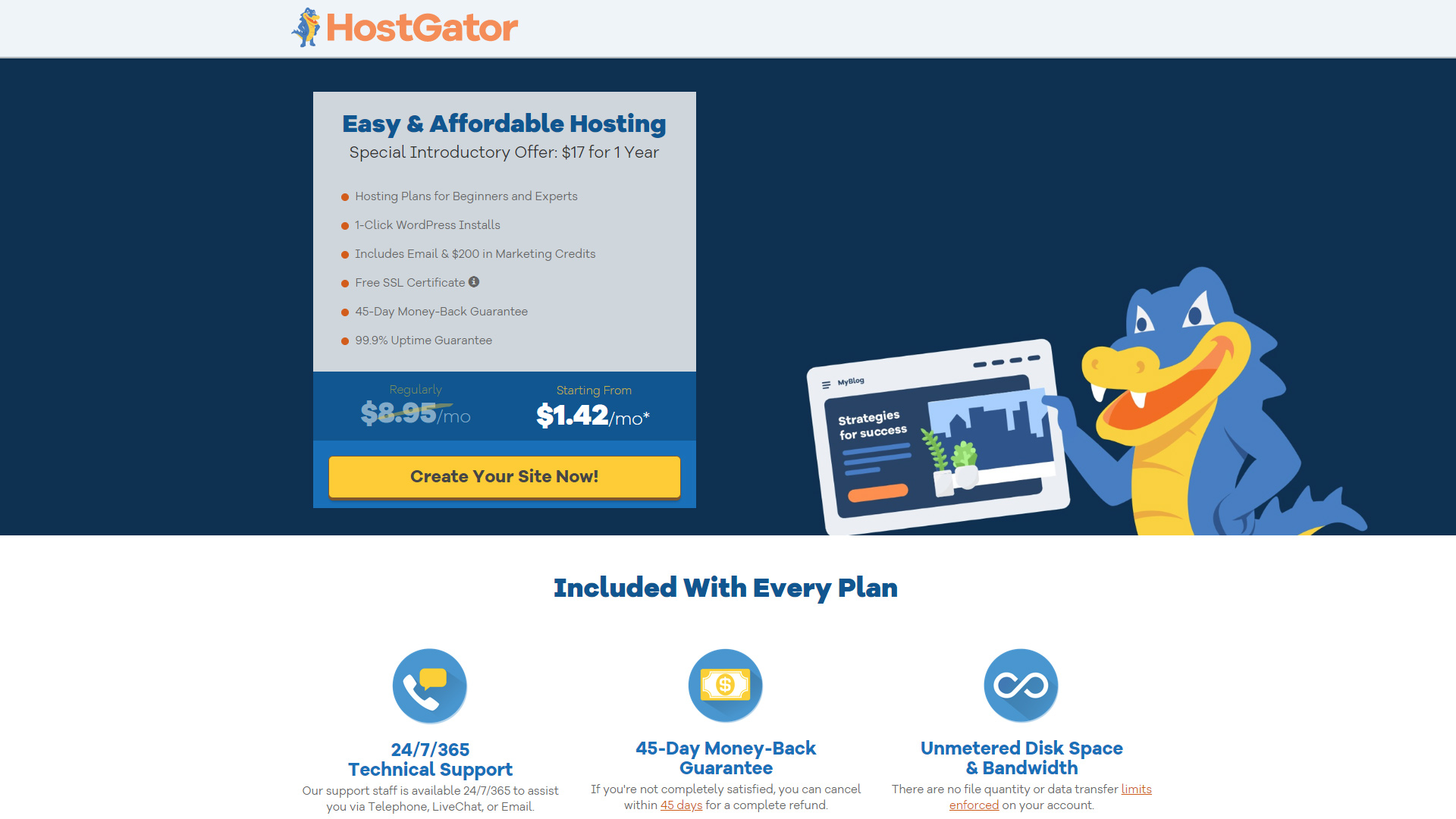Web hosting vs WordPress vs website builder: Which is best?
What’s the best option for a new website?

When it comes to creating a new website, there are a series of options open to you or your business: web hosting, WordPress, and website builders. All three of these methods can be used together, so they're not mutually exclusive options for building a site: but it's useful to have each service defined, so that you know where to begin.
If you choose to build a site using one of the best website builders, you have to decide how much of the work will be undertaken by you, and how much you’ll outsource to developers or experts. The best approach to a site will depend entirely on how much time you can spare, the level of control you want over the build, and the amount of technical knowledge you've got.
Thankfully, website builders provide a strong option for creating sites when you've not got the necessary experience. With their simple drag-and-drop interfaces, anyone can make a website, even if you don’t know HTML, CSS, or JavaScript code. These builders create the underlying code for you, and save you the hard work.
If you're building a site yourself or with a web design company, you'll need to buy web hosting from one of the best web hosting services. Here, you’re renting disk space on a remote computer server, onto which you upload your site's files, allowing visitors to then access the site from all around the world.
However, if all of that sounds too complex or too much work for you, there's a third option in content management system (CMS) software, which makes creating web pages simpler. WordPress is the most well-known CMS, and has a particular focus on blogging sites. You can create and publish a WordPress site in a few minutes or hours, even without web development experience.
In this comparison feature, we discuss and evaluate these three options, pitting web hosting vs WordPress vs website builders and exploring their relative pros and cons for site building.
Web hosting vs WordPress vs website builders: Web hosting

When you buy web hosting, you get online storage space, and the rest is up to you. Buying a web hosting service gives you the greatest control over how your website will turn out, but it invariably increases the amount of work you must do to get your website off the ground.
Sign up to get the BEST of Tom's Guide direct to your inbox.
Get instant access to breaking news, the hottest reviews, great deals and helpful tips.
Having your own web hosting from the beginning makes it easier to add additional features to your website when your business grows. You’re also not locked into using any one piece of software.
Hosting providers often have one-click installers for popular CMSs that can save you lots of time. Most companies need not reinvent the wheel, so it makes sense to use tools that make building and managing your site easier instead of creating everything from scratch.
Pros:
- Maximum flexibility
- A huge number of providers
- Scales well
Cons:
- Requires technical expertise
- Longer development cycle
- Increased maintenance and management
WordPress

You can install the free WordPress CMS via one of the best WordPress hosting providers, or you can host your site and utilize a website builder for WordPress, installable as plugins.
The best thing is how easy it is to build a website with WordPress through its browser-based editor. Thousands of themes exist for WordPress, so you can quickly have a professional-looking site, and there are over 55,000 WordPress plugins you can install that add functionality to your website.
WordPress is an excellent choice to get a fully functioning website up and running quickly. However, security is a concern on WordPress sites. The software itself is considered relatively secure, but themes and plugins are all developed by distinct people, so bugs and security holes are often introduced. WordPress is the most hacked CMS in the world.
While WordPress itself is free, premium themes and plugins are not. You must also update the software regularly as security holes are patched, which can inadvertently render a theme or plugin on your site unusable until it has been updated.
Finally, although selling goods on a WordPress site is possible, WordPress wasn’t built with ecommerce in mind. If you’re selling goods online, consider a more ecommerce focused CMS like Shopify.
Pros:
- Thousands of themes
- Powerful plugins
- Easy multi-creator blogging
Cons:
- Cost of plug-ins can mount up
- Better options exist for ecommerce sites
- Security is a concern
Website builders

Website builders such as Wix, Weebly, and Squarespace create website code for you. You need not know anything about website development to use a website builder, as all you do is drag and drop the elements you want onto the page.
The other major advantage of using a website builder is speed. You can make a website much more quickly using a website builder than if you were coding each page yourself.
Unfortunately, website builders are rather simplistic, so you’re restricted to specific, generic templates. Adding functionality to your site that isn’t inherently part of the website building tool is challenging, making scaling your site up later a problem.
Finally, the created website code is machine-generated so it can be difficult for a web designer to work with. This makes transferring your website to other platforms difficult, essentially locking you into using the website builder forever.
Website builders are a fine choice for small, basic websites that won’t need to grow into something bigger in the future, but their limitations make them a poor choice for everything else.
Pros:
- Fast website creation
- Low cost
- No technical knowledge required
Cons:
- Difficult to transfer code
- Cookie-cutter designs
- Poor scalability
Web hosting vs WordPress vs website builder: Which is best?
In conclusion, you can see that despite comparing the three different areas of web creation, elements of each are better than those of the competitors, but all three allow for website creation in one way or another. It depends entirely on what you and your business are looking to achieve, whether it be ecommerce, blogging, a high-capacity webpage or all three.
Further reading on web hosting, WordPress, and website builders
Read our other guides to top web hosting services, including: the best cloud hosting; the best VPS hosting; the best web hosting for cheap; the best free web hosting; and the best Windows hosting and best Linux web hosting.
For more on WordPress, take a look at our website builder comparison pitting WordPress vs Wix Squarespace, and our comparison of web hosting vs WordPress hosting. We also outlined seven top reasons to choose managed WordPress hosting, busted five myths about the CMS, and discussed the most common WordPress mistakes and how to fix them.
Finally, it's worth checking out our guides to the best ecommerce website builders and the best small business website builders too.
Mark is an expert on displays, reviewing monitors and TVs. He also covers storage including SSDs, NAS drives and portable hard drives. He started writing in 1986 and had contributed to MicroMart, PC Format, 3D World among others.

